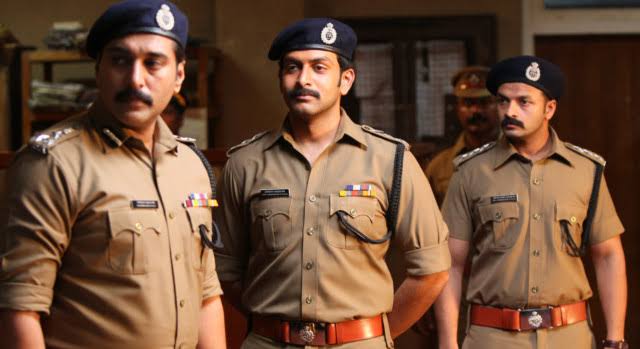“Mumbai Police” tells the story of Antony Moses, Assistant Commissioner of Police (ACP) for the Indian Police Service (IPS). A hot-tempered cop, Antony has to start from scratch after a car crash causes him to lose his memory. This hinders the progress of an investigation involving the assassination of a mild-mannered police inspector and one of his close friends, Aryan.
Once at the cusp of cracking the case, Antony now finds himself crumbling under an identity crisis while attempting to make sense of who he was before the accident. As a result of his amnesia, he can no longer trust anyone around him. These include his colleagues, who are also beginning to show signs of turning against him. Antony also begins to face the brunt of some unruly actions that occurred prior to the accident; actions that he, again, has no recollection of committing, largely thanks to his amnesia.
“Mumbai Police” doesn’t give a straight and direct answer to who the culprit might be to the audience. Instead, it keeps them guessing by following a nonlinear style of storytelling with constant back-and-forth between the past and present. The crisp editing lends a smooth flow to the proceedings and makes for a taut, engaging and gripping viewing experience.

How ‘Mumbai Police’ Sheds Light on Toxic Heteronormative Behaviors
However, what I’d like to emphasize here is not how well this whodunit keeps you in suspense, nor its brilliant technical aspects. Instead, “Mumbai Police” sheds light on how how we as a society have normalized toxic heteronormative behaviors to a harmful extent. And the character of Antony is just the perfect example of the same. As the story unfolds and Antony comes to terms with his former self, you soon realize that he isn’t a hot-headed cop just for the sake of it; rather because he is a product of toxic masculinity and the accepted heteronormative ideals. The movie also showcases how the public’s stereotypical perception of men in power; along with how their perception that ‘weak men are sissies’ can play a part in the making of a monster.
The true genius of “Mumbai Police” lies in its subversion of the familiar heroic, macho, alpha-male cop trope; themes we’ve seen being glorified time and again onscreen in potboilers like ‘Singham‘ or ‘Dabangg‘, or in other similar formulaic fare featuring a macho cop protagonist. And at first glance, Antony seems as if he is just that; an arrogant, macho alpha-male cop hardwired to see red when his ego is threatened or challenged. But as the story progresses and as he begins to put the puzzle pieces of his lost memories back together, shocking details of his past begin to emerge. You begin to understand the reason behind his urgent need to hide behind such a toxic façade: from his peers and probably from himself.
Stellar Performances Bring the Film’s Message to Life
Prithviraj Sukumaran delivers a stellar performance as the lead character with grey shades and a dual nature. The versatile actor strikes a fine balance between playing ‘Antony A’ & ‘Antony B’ (a moniker designated to him by a psychiatrist). ‘Antony A’ is the intimidating, hotheaded, no-nonsense cop whose authority and machoism borders on police brutality and even sexual assault while squeezing out confessions from unwilling suspects. On the other hand, ‘Antony B’ is more of a docile, calm, and calculated cop; although this change might stem from his amnesia, rendering him unable to recall his original personality. “Mumbai Police” allows Sukumaran to demonstrate his brilliance as an actor, especially in the emotion-packed climax. The rest of the cast lend ample support to him, with Rahman’s role as CP Farhan standing out for me.
At first glance, “Mumbai Police” might be a tad confusing; and it’s due to the many twists, turns, and red herrings that are thrown at you during its runtime. But behind it all lies a brilliant social message; how we as a society ought to take men’s mental health, and toxic masculinity in particular, a lot more seriously.
For that reason alone, even if you aren’t a big fan of thrillers, I urge you to watch this one.